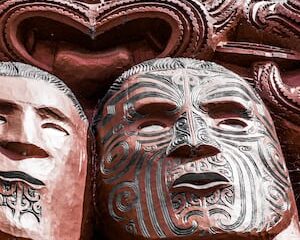Politics
Supreme Court Decision Bolsters Māori Coastal Rights Claims

A recent ruling by the Supreme Court of New Zealand has the potential to reshape the landscape of Māori customary rights, particularly concerning riverbeds. The court determined that riverbeds classified as part of the marine area, such as river mouths, can be included in Māori customary marine title orders, provided specific legal criteria are met.
The decision is particularly significant for the hapū of Ngāti Ira, part of the eastern Bay of Plenty iwi, Te Whakatōhea. Their customary title claim now extends to the mouths of both the Waiōweka and Ōtara rivers near Ōpōtiki, marking a momentous victory after eight years of legal proceedings.
Celebration and Significance of the Ruling
Te Ringahuia Hata, who was the customary title applicant for Ngāti Ira and Ngāti Patu, expressed her elation over the outcome. “The timing also couldn’t be any better for us, with the coalition government announcing plans to remove section 58 of the Marine and Coastal Area (Takutai Moana) Act by October,” she stated. This ruling validates the hapū’s rights to exercise authority over the riverbed based on their ancestral claims.
Hata further emphasized the broader implications of the Supreme Court’s decision, noting its potential to set a precedent for other iwi and hapū across the country. “To have this decision all the way from the Supreme Court is just an absolute landslide win for us. It’s exciting for other groups as they navigate similar decisions,” she added.
The Supreme Court’s ruling not only affects the Waiōweka River but also resolves seven other legal issues related to overlapping marine title claims, including those concerning Whakaari/White Island and the Ōhiwa Harbour.
Legal Perspectives and Future Implications
Annette Sykes, the lead counsel for Ngāti Ira and Ngāti Ruatākenga, highlighted the ruling’s significance in recognizing the unique political and cultural authority of hapū within the Te Whakatōhea iwi. She noted that while Crown policies often favor iwi over hapū, this decision acknowledges the traditional governance structures in Māori society.
“This judgement challenges the Crown’s one-size-fits-all approach and affirms the interdependence and unity that exists within hapū,” Sykes explained. The ruling clarifies a previously ambiguous area of law, providing a firmer foundation for other hapū wishing to assert their rights over riverbeds.
Sykes also addressed misconceptions surrounding the ruling, urging against fears of conflict. “One of the most beautiful parts of the evidence presented by Te Whakatōhea elders is their desire to coexist with those they invite into their territories,” she remarked. She further elaborated on the historical significance of the Waiōweka River, noting its importance following land confiscations and battles in the past.
The decision not only affirms the customary rights of the hapū but also paves the way for collaborative relationships with other stakeholders in the region. In response to the ruling, Justice Minister Paul Goldsmith indicated that he would be engaging with officials to discuss its implications moving forward.
This landmark case underscores a vital moment in the ongoing evolution of Māori rights and governance, potentially encouraging further claims and fostering a greater understanding of Māori customary law in New Zealand.
-

 World6 days ago
World6 days agoPrivate Funeral Held for Dean Field and His Three Children
-

 Top Stories1 week ago
Top Stories1 week agoFuneral Planned for Field Siblings After Tragic House Fire
-

 Sports3 months ago
Sports3 months agoNetball New Zealand Stands Down Dame Noeline Taurua for Series
-

 Entertainment3 months ago
Entertainment3 months agoTributes Pour In for Lachlan Rofe, Reality Star, Dead at 47
-

 Entertainment2 months ago
Entertainment2 months agoNew ‘Maverick’ Chaser Joins Beat the Chasers Season Finale
-

 Sports3 months ago
Sports3 months agoSilver Ferns Legend Laura Langman Criticizes Team’s Attitude
-

 Sports4 weeks ago
Sports4 weeks agoEli Katoa Rushed to Hospital After Sideline Incident During Match
-

 Politics2 months ago
Politics2 months agoNetball NZ Calls for Respect Amid Dame Taurua’s Standoff
-

 World2 weeks ago
World2 weeks agoInvestigation Underway in Tragic Sanson House Fire Involving Family
-

 Entertainment3 months ago
Entertainment3 months agoKhloe Kardashian Embraces Innovative Stem Cell Therapy in Mexico
-

 Sports4 weeks ago
Sports4 weeks agoJamie Melham Triumphs Over Husband Ben in Melbourne Cup Victory
-

 World4 months ago
World4 months agoPolice Arrest Multiple Individuals During Funeral for Zain Taikato-Fox





















